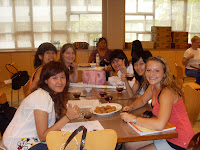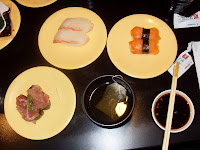
Who are you and why do you want to go?
Most study abroad programs require application essays. These essays typically serve as proof that you can form cogent sentences and have put some thought into your decision to apply for an international experience. Give the program staff a chance to get to know you and impress your host institution with thoughtful, well-crafted essays.
- You might think your life is boring, but you still need to introduce yourself in an engaging and compelling way. The “tell us about yourself” essay can be the hardest one to write, especially if you think that by going abroad, your life is just beginning. When writing your biography, you don’t need to worry as much about the historical facts as the essential factors that made you who you are. Even if you spent 18 uneventful years living in a functional household surrounded by picket fences and puppies, there are still lots of factors that affected your choice of major and your intellectual and personal interests. Focus on the things that affected you intellectually, like favorite books, important classes, or skills that you’ve learned. Share your interests and hobbies…a dedication to a sport or craft says a lot about your passions and personality.
- The flipside to “my life is too boring” is “my life is too full of drama.” We have become a culture of over-sharers. While an illness or difficult family situation may have been the most formative experience of your life, it is important to convey this information in a clear and dispassionate manner. Remember that your program acceptance is never based on health or disability status; you will have an opportunity to disclose this later in the application process. If you choose to disclose a family tragedy or hardship in your essay, keep the facts brief and clear without going into tawdry detail or not maintaining your privacy. Focus instead on how you developed from the experience. Restraint demonstrates maturity and keeps the focus on your abilities rather than your soap opera.
- Writing about your goals. Most study abroad essays will require that you describe “why you want to participate on the program.” The following answers are not sufficient: “it would be really cool;” “I’ve always wanted to date someone with a ___ accent;” and “I just want to go somewhere.” This is the time to reflect on why your destination piqued your interest…was it the music, the culture, the food, the history? What kinds of classes are you hoping to take and how will they fit in with your degree progress? Do you have personal goals of gaining intercultural skills or travel? Sharing these ideas lets your program advisors know that you’re putting thought into your decision and you will be willing to prepare for your adventure.
- Writing about transitions. Many programs require an essay to discuss how you have transitioned in life. This is a great indicator of how well you will do when you arrive in a completely new destination, need to use a new language, and navigate a new system. If you haven’t had a lot of life transition, talk about the transition to college or learning how to be successful in a new job or activity. Describe how you have been willing to try new things and be flexible and how you keep school and life balanced. If you’ve had difficulty transitioning, talk about your lessons learned and the tools you have to transition in the future.
- Remember to keep your essays in your own authentic voice while deploying proper usage and good grammar. Double check the spelling for the places you’re applying for…a Welsh university would cringe at receiving an application for your “Study Abroad in Whales.” You don’t have to sound stilted; the essay should sound like it is coming from a college student with a real life and real goals. Have a trusted proof-reader take a look at your essay, or take it to the Writing Center on campus for feedback.
- Save a copy of those essays. They may provide the foundation for a scholarship essay or application an in the future.








 Kayla Whittington is a senior in HDFS and Education. She studied in Taiwan in Fall 2008 on a
Kayla Whittington is a senior in HDFS and Education. She studied in Taiwan in Fall 2008 on a 

